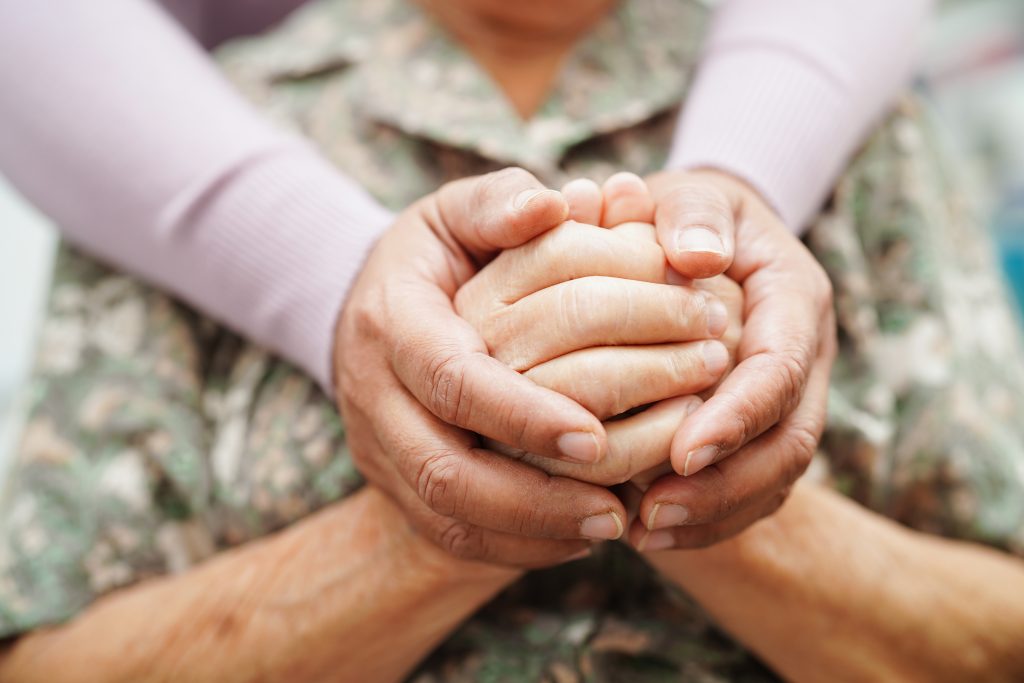LIVING WITH CANCER WHILE RECEIVING LONG TERM TREATMENT
6 Things Patients Taught Me About How to Cope with Extended Treatment
Due to the many advances in cancer treatment, people are increasingly living for a long time after their diagnosis by having ongoing treatment, called extended treatment. For example, a person with chronic myelogenous leukemia may take oral medications for decades and perhaps for the rest of that person’s life. A man with a neuroendocrine tumor recently said that he learned that he could live a reasonably normal life with the right monitoring and right surveillance and by responding to any changes he notices and communicating with his health care team.

Certain cancer diagnoses that used to be called “incurable” have now become “treatable,” and this means that more people are facing the challenges of living with a chronic illness. This is increasingly being called “chronic cancer.”

A woman with metastatic breast cancer said it best: “How is it that something as abnormal as chemotherapy is now a routine and ‘normal’ part of my life?” She was in her thirties at the time and struggled to maintain a balance between the “work” of being a patient and the work she loved and found meaningful and fulfilling. She was teaching a college class in anthropology and told me she didn’t tell her students she had cancer because she felt the need to preserve a space in her life that was free of cancer, where she would be unencumbered by disease and treatment.
These thoughts likely resonate with other people with cancer and their caregivers, who face similar daily struggles to balance the demands of illness with the need to preserve a sense of normalcy in their lives
People living with cancer frequently have to make decisions about their treatment. A treatment that worked well for many months or years may stop working. Patients describe feeling torn when faced with these decisions. Do they choose an aggressive treatment that may also cause side effects that worsen quality of life? Or do they choose to focus on maintaining the best possible quality of life?
Making any treatment decisions is stressful and should be done with the support of the patient’s trusted clinicians. Oncologists bring scientific evidence as well as experience and judgment to the table. Patients bring their preferences, goals, and knowledge to bear in making decisions about therapy

My patient who wanted above anything else to be well enough to teach her students chose a treatment plan that preserved her quality of life, even though her family urged her to consider more aggressive and cutting- edge options.
Rapid scientific progress and breakthroughs have brought hope to many people living with cancer:
For those having extended treatment, it is important to be prepared to experience frustrations and be equipped to move past the disappointments that can be so frequent in the cancer experience.
Let me share some practical tips I learned from wise patients and colleagues:

- It helps to have a plan. Understanding extended treatment options and actively participating in treatment decisions is helpful. Being prepared to change course can be helpful; for example, if the treatment stops working, there are side effects that force you to stop treatment, or a better option comes along.
- Communication is key. Having a respectful, collaborative approach to communication with the health care team is crucial. Communication is like playing catch. Both parties must learn to throw and catch, and they need to watch the ball before they catch it. Talking about your concerns as they arise and making sure your health care team hears your concerns is essential to getting the support you need.
- Managing cancer feels like a job. Having extended treatment is like having another job, but asking for help can make things more bearable and efficient. Sharing tasks and discussing your options with a caregiver or trusted friend can help you find solutions to complex problems.
- Explore your options. New treatments often become available, either through clinical trials or new standards of care. So it’s important to stay up to date or to discuss the latest advances with oncologists who are actively engaged in this kind of research.
- Educate yourself about each treatment. The reality of cancer treatments is that they almost always come with side effects. Find out what to expect and how to manage symptoms that may affect your quality of life. Knowing this can help you feel in control, and it may help improve your quality of life.
- Keep a part of your life “cancer-free.” This is my favorite advice to people living with chronic cancer, which I learned from that smart patient I described above. Keep a part of your life cancer-free. This does not mean that you deny that you still have cancer. Having that safe space away from cancer will give you a release valve from the cancer’s demands on your time and energy.

Living with Cancer While Receiving Long-Term Treatment:
Sometimes, cancer treatment can go on for an extended period of time. Many people receive cancer treatment for months, years, or even the rest of their lives.
There are two goals for cancer treatment, also called cancer therapy: eliminate the cancer or control the cancer’s growth. When cancer therapies are used to eliminate the cancer, they are called “curative cancer treatments.”
Cancer therapies that are used to control cancer growth are called “palliative cancer treatments.” Both curative cancer treatments and palliative cancer treatments can include long-term or extended therapies
For long-term treatments that last months or years to control cancer, cancer may be treated like a chronic illness. Similar to the approach with such chronic illnesses as multiple sclerosis or type 1 diabetes, the goal of long-term treatment is to help patients live as well as possible for as long as possible.

Long-term treatments can include surgery, radiation therapy, and systemic therapies like chemotherapy, targeted therapy, hormone therapy, and immunotherapy.
When is long-term cancer treatment needed?
Long-term treatment for cancer continues for a extended period of time after an initial cancer diagnosis and your primary treatment. There are different situations and different types of cancer that might benefit from long-term, extended cancer treatment.

- To prevent cancer from returning. Some people whose cancer has been cured may need ongoing treatment to keep it from coming back. For example, people with early-stage breast cancer whose disease has been cured using surgery or radiation therapy may receive ongoing hormone therapy to reduce risk of recurrence.
- To put cancer in remission and maintain and control cancer progression. With advances in cancer research, some cancers are more likely to be treated chronically, including specific types of leukemia, lymphoma, ovarian cancer, and lung cancer. Doctors may choose a long-term treatment to help stop the disease from growing, spreading, or progressing. This is also called maintenance treatment. For example, people with chronic myelogenous leukemia (CML) often take a medication known as a tyrosine kinase inhibitor for many years.
- To manage advanced cancer. Metastatic cancer may be treated over the long term. Metastatic cancer means that the cancer has spread to a different part of the body from where it started. In the past, many people did not live long with metastatic cancer due to the limited effectiveness of available treatments. With advances in research, doctors can now treat some types of metastatic cancer for much longer periods of time, even when the disease cannot be cured.

What kind of long-term treatments are used to treat cancer?
Many types of extended treatment plans use medication, also called systemic therapies. These include:
- Chemotherapy
- Immunotherapy
- Targeted therapy
- Hormone therapy
You may receive the same type of systemic therapy initially used to treat your cancer. Or, a different drug or combination of drugs may be used to treat cancer. Your doctor may also suggest you join a clinical trial for a specific long-term treatment. The type of long-term treatment you receive depends on many different factors, including your cancer type, location, stage, your age, and your general health.
During your treatment period, your cancer may stay the same over time. This means it is controlled. Treatment may be stopped if the cancer is in remission and then restarted if it starts growing again.

It is also possible for the cancer to go through cycles of growing and shrinking. If cancer continues to grow or spread, a different treatment may be recommended. In general, cancer treated in this way may change over time, but it does not go away completely.

How to make decisions about long-term cancer treatment
It is important that you and your doctor talk about the goals of your treatment plan. This includes the medical goals for each treatment and your goals for living your life with cancer. During this conversation, your doctor can tell you if the recommended treatment plan is curative or palliative, and why this plan is recommended for you.
It is also a chance for you to share what is important to you for your treatment. Tell your doctor about what is important to you about living with cancer so they can help you make informed decisions about your medical care. For example, you may want to live as long as possible, even with the cancer and treatment causing symptoms and side effects. Or, your priority may be to experience fewer symptoms and side effects from cancer and its treatment. During this conversation, keep in mind the quality of life you would like to maintain. If your goals change over time, it is important to let your doctor know. These conversations are an important part of “shared decision-making,” which means that you and your doctor work together to choose your treatment and care plan
Your doctor may recommend long-term or life-long treatment to help you live with cancer. If the therapies stop working or they cause side effects, also called toxicity, that are unacceptable to you, your doctor may change the dose or stop the medication. Please share how you are feeling with your health care team.

If the treatment not effective or it needs to be changed because of side effects, it does not mean you or your health care team are giving up. It means that the treatment is not achieving the goal of helping you live as long or as well as possible and a different plan is needed.

Tips for managing cancer while receiving long-term treatment
It can be difficult to manage daily life, physical side effects, and emotions during an extended treatment period for cancer. These tips can help.
- Develop a survivorship care plan with your doctor. Your survivorship care plan should have information on future checkups and cancer tests. Talk with your doctor regularly about your treatment, including discussing ideas for improving your physical and emotional health.
- Talk about side effects with your health care team. Discuss what symptoms and side effects are possible, so you can be more prepared if they occur. Also, let your health care team know about side effects you experience, including if they worsen or a new problem starts. They can help manage and relieve side effects.
- Take your medications as prescribed. Carefully follow the medication instructions provided by your doctor to get the most benefit. Ask any questions you have, such as what to do if you miss a dose.
- Schedule and get follow-up tests. These medical tests provide valuable information to you and your doctor about if or how your cancer has changed. Staying on track can also help you feel a sense of control and provide reassurance about your health. Plan ahead and think through transportation options to and from each appointment.
- Explore cancer rehabilitation options. Rehabilitation helps people regain or keep their independence over different aspects of daily living after a cancer diagnosis. Services can include such help as physical therapy, pain management, nutritional planning, and emotional counseling.
- Make healthy lifestyle changes. Think about what you can do every day to help your body and mind feel stronger. This includes not smoking, avoiding or reducing alcohol intake, eating healthy foods, exercising regularly, getting good sleep, and reducing stress.
- Ask for financial help. The costs of extended medical treatment can add up. Your health care team can provide referrals to financial resources.
Coping with cancer while receiving long-term treatment
It is normal to feel angry, scared, anxious, or sad about cancer that needs long-term treatment. Talking about your feelings is important, even when treatment works well. Ask your health care team for resources that can help you cope, such as:
- Talking with a counselor.
- Joining an in-person or online support group.
- Talking with a counselor.
- Learning relaxation and stress management techniques. Meditation, yoga or deep breathing can help.
Support for caregivers
Family caregivers who are taking care of someone at home during extended cancer treatment can have unique challenges. This can include fatigue, depression, and anxiety. They may also have sleep problems or lack time to take care of their own health. Ask your health care team about ways to help caregivers cope.

Support for caregivers
- Questions to ask the health care team
- What are my extended treatment options? What is the goal of each treatment?
- What clinical trials are open to me? How do I find out more about them?
- Which extended treatment do you recommend for me? Why?
- What side effects can I expect? How can they be managed?
- How will this treatment affect my daily life? Will I be able to work, exercise, and perform my usual activities?
- What follow-up tests will I need?
- How will we know if extended treatment is working?
- What can I do at home to support my health?
- If I need help coping with the emotional toll of cancer, who can I talk with?
- If I’m worried about managing the costs of this treatment, who can help me?
